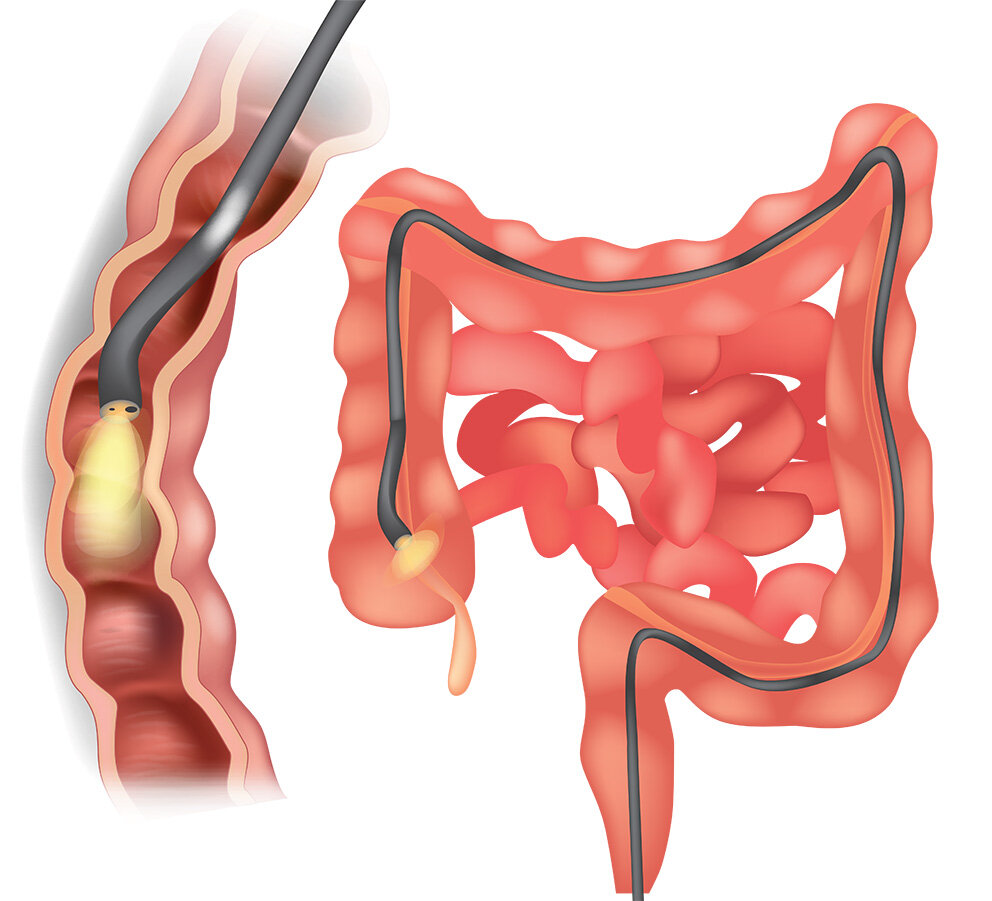Gastroscopy & Colonoscopy
Every person is likely to need a gastroscopy or colonoscopy procedure at some point as part of screening or diagnosis for gastrointestinal problems. While these procedures are common, our experienced General and Colorectal Surgeons are skilled at detecting diseases of the gastrointestinal tract and diagnosing early cancers.
What is the difference between gastroscopy, endoscopy and colonoscopy?
The terms gastroscopy, endoscopy and colonoscopy refer to diagnostic gastrointestinal procedures that are commonly used to assess symptoms and plan treatment for gastrointestinal tract conditions. These conditions include those of both the upper and lower colon. The type of instrument used to perform these procedures is called an endoscope. It is a long flexible tube with a camera on one end and a lens on the other.
What is a gastroscopy?
A gastroscopy is a procedure that involves a fibre optic gastroscope being threaded through the mouth and down into the first part of the small intestine, known as the duodendum. This procedure is performed under sedation (called twilight anaesthetic) and is undertaken to allow inspection of the oesophagus, stomach and duodenum.
A gastroscopy is a straightforward day procedure. No preparation is required, unless it is performed in conjunction with a colonoscopy. You will be asked to fast for at least six hours prior to the gastroscopy procedure, meaning you need to refrain from ingesting food or liquids.
What is a colonoscopy?
A colonoscopy is a procedure that involves a colonoscope being passed through the anus, into the colon and part of the small intestine. The procedure is undertaken so that any polyps, cancers and inflammatory conditions of the colon can be identified. A colonoscopy takes 30 minutes and requires 1–2 hours of recovery time at the hospital.
How do I prepare for a colonoscopy?
Preparation for a colonoscopy involves making sure your colon is clean so that the colon can be safely navigated and that a clear visual image is possible, meaning all polyps can be detected and removed.
To prepare for a colonoscopy, you need to:
drink clear fluids only for 24 hours – this means lemonade, apple juice, jelly, black tea or clear broth. No solid food can be consumed for the 24 hours beforehand.
purge the colon – through taking Glycoprep or PicoPrep laxatives three times throughout the day. If your colonoscopy is a morning procedure, this should be taken at 1pm, 3pm and 5pm the day before the procedure. If it is an afternoon procedure, you can take it at 6pm and 8pm the day before and at 6am on the day of the procedure. This ensures that you will achieve bowel movement so that the colon is clear.
What happens after a colonoscopy or gastroscopy?
A colonoscopy or gastroscopy is a straightforward procedure. Your surgeon will discuss what happened during the procedure, including any findings, and answer any queries you might have.
Due to the anaesthetic used for the procedure it is important that someone is waiting to pick you up afterwards because it is not safe for you to drive. You should arrange to have someone stay with you after the procedure in the unlikely event that a complication occurs.
If you need to have a screening gastroscopy or colonoscopy, you will need a referral from your GP to see a surgeon. The surgeons at Sunnybank Surgical consult at hospitals across Brisbane so you can choose the most convenient location to suit you.
Should I choose a Gastroenterologist or Colorectal Surgeon for a colonoscopy?
A Colorectal Surgeon would be the most appropriate specialist to perform a colonoscopy as they operate regularly on the large intestine. Diseases of the large intestine (including colitis, polyps and diverticular disease) are all surgical conditions. Abdominal pain is a surgical condition. A surgeon is less likely to offer direct-access or open-access colonoscopy. Surgeons seek to take a good history to understand the nature of your symptoms and correlate the findings during colonoscopy to your symptoms. This will allow best care to be delivered to the patient.

